A new challenge: Rohan Dennis on his move to Bahrain-Merida - Q&A
Australian to ride Vuelta with Worlds time trial in mind
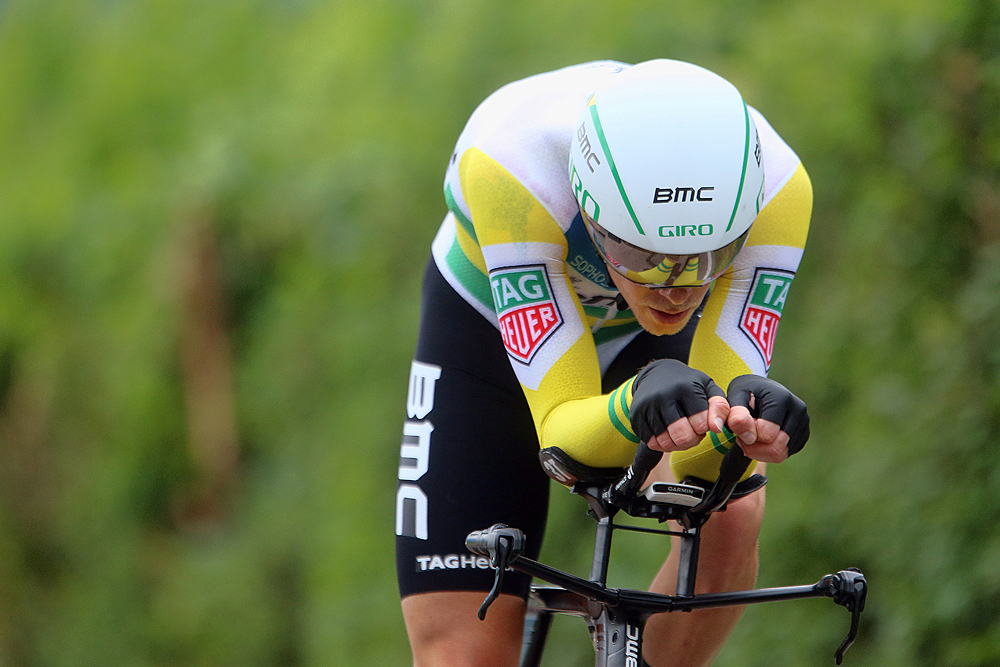
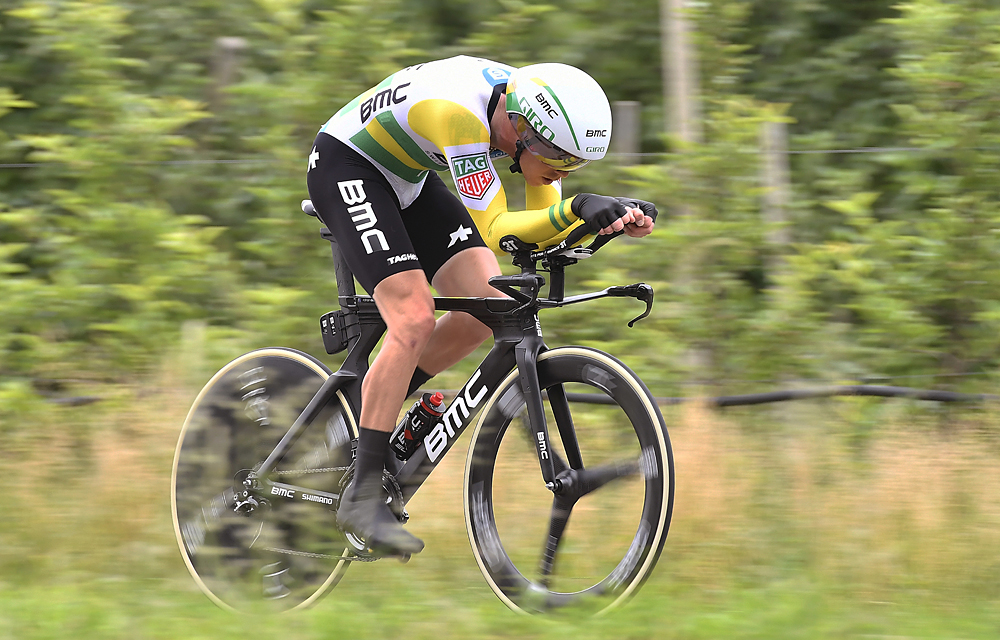
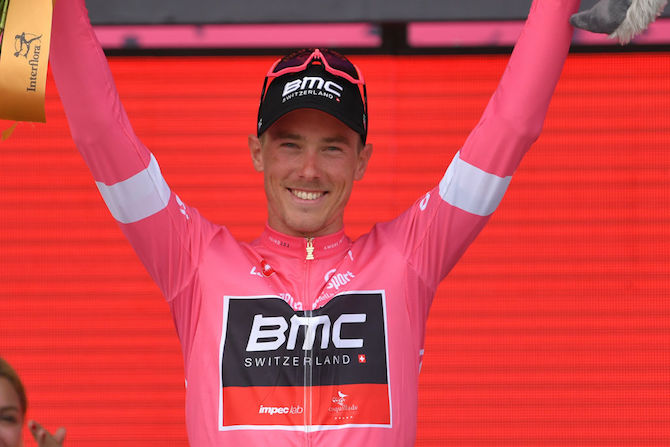
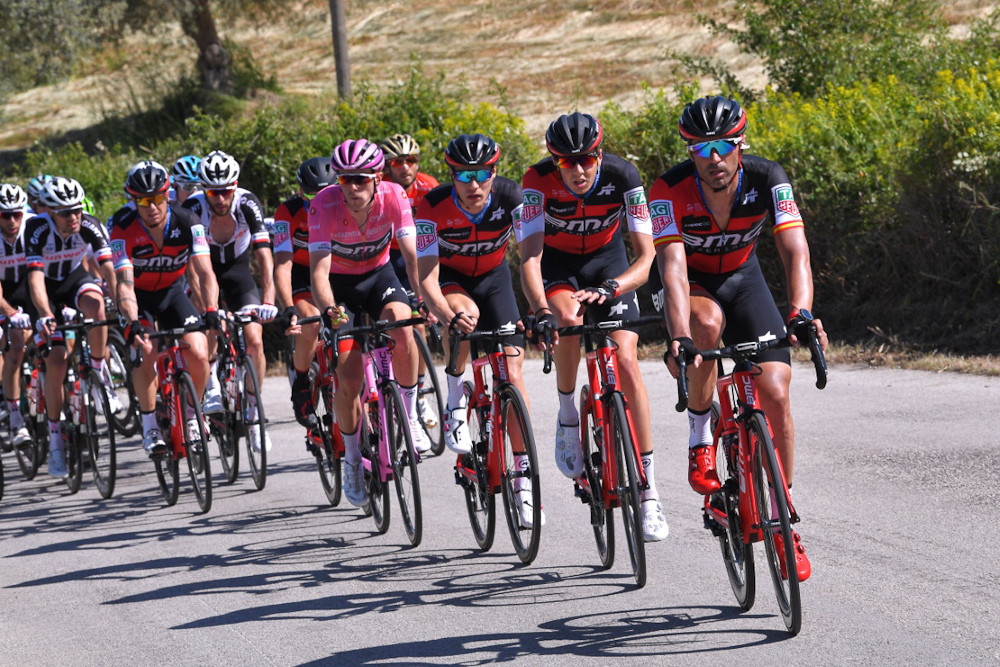
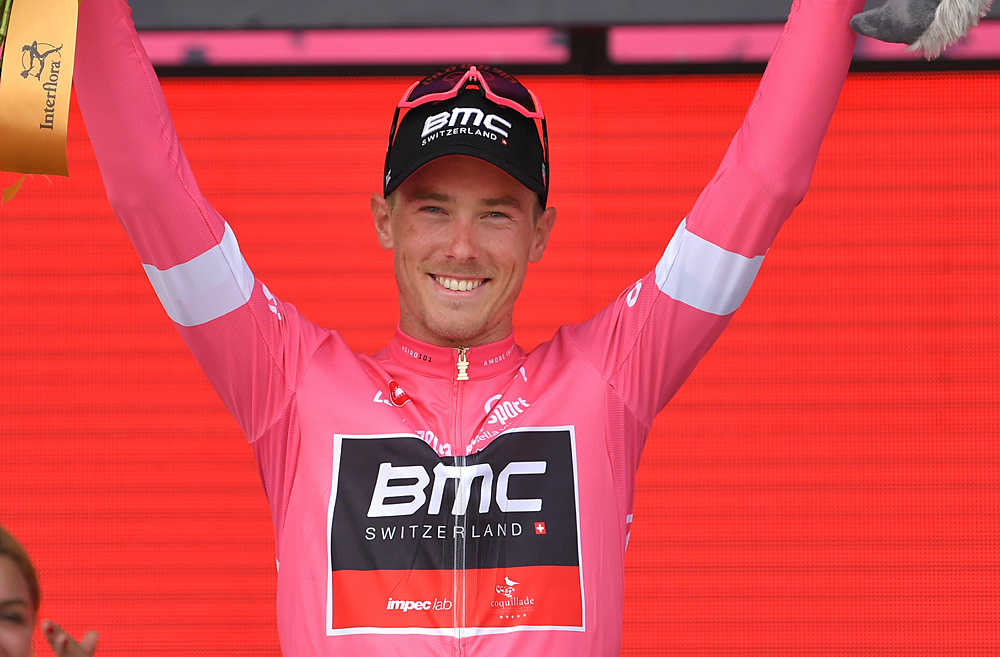
As he waited for the final stage of the Tour de Pologne on Friday morning, Rohan Dennis (BMC Racing Team) discussed going for gold this September in the Worlds, the opening time trial of the Vuelta a España, and his switch to Bahrain-Merida for 2019.
Cyclingnews: On stage 6 we saw you open up the throttle on the final climbs, and it felt a bit like this was the curtain rising on your second half of the season. What was the goal there?
Rohan Dennis: It was purely for Dylan [Teuns, 2nd on GC behind Michal Kwiatkowski (Team Sky) – ed.] We were sitting there behind Sky and it was getting quite frustrating to be honest on that steep, narrow climb, it was blocked every lap. I was thinking, ‘Ach, I’m doing 300 Watts at 40kph here,’ I was literally not pedalling, we needed to do something, they [Sky] are controlling it too much.
Max [Sciandri, directeur sportif – ed.] was holding it off and I don’t think he wanted me to do it so early, but if we did it like that, we’d just be doing the work for Sky. So I thought, ‘If someone’s going to do it, why not me?’ You can’t really sit in on that climb, and if you’re setting the pace, it’s more like you’re hurting someone else, and not having someone else hurting you. And that’s a nicer feeling, knowing you’re doing the damage.
So in a way it was a double-headed thing, it was good to do it for Dylan but also good training for me. For me this race [Pologne] isn’t a goal, but it is for him. My goals are more the TTs in the Vuelta and preparing for the Worlds.
CN: So you’re doing the Vuelta, but not for GC?
RD: I’m not doing GC. That’ll be more for Richie [Porte]. I still want to get that rainbow jersey and I think doing specific preparation at the Vuelta is the ideal way to do that.
Get The Leadout Newsletter
The latest race content, interviews, features, reviews and expert buying guides, direct to your inbox!
CN: The opening Vuelta time trial is 8 kilometres long. Is that a little too short for your liking?
RD: It should be fine. The Giro’s opening time trial was nine kilometres, and it was technical, I got second there, so I don’t think it’s too short. Unless it was one kilometre up a 10 percent climb, then I’m definitely not going to win it.
It’ll be hot, it should be in the 30s, so I think it’ll be a good target. And then there’s the stage 16 time trial, which is probably as far as I’ll go, although if the team need me to stay any longer, I will. But if not then I’ll head for home, prepare for the Worlds TTT which is a big goal for the team in their final year as BMC, they really want to win that, and obviously the individual TT is a big goal for me personally too.
CN: What do you know about the individual TT route? Is it good for you?
RD: It’s 54 kilometres long, not as steep as last year’s climb [in Bergen], with a climb at seven percent. The 2018 Giro TT was in a valley, and from what I’ve been told, it’s like that, then you go up, towards Innsbruck over the climb and then it’s a drag down, 10 or 12 kilometres. I think it’s a good one, but it’ll be interesting how we back up because the TTT is the other way up the same route, coming out of Innsbruck and it’s 64 kilometres. So they’re making it tough this year, it could be cold too, but the last time I did one like this was in Ponferrada [Worlds 2014]. I ran fifth there, and I was on a bike I’d been racing for less than three months, because I’d changed teams a few months before. So it’s a big target for the end of the season.
CN: Last year you rode the Tour de Suisse but had to quit the Giro early, this year you completed the Giro but didn’t race in Switzerland. How do you feel at this point in the season, compared to 2017?
RD: To be honest the bigger break [in 2018] wasn’t planned: I was supposed to be in Suisse again, but I got sick. I was battling that sickness into July. I had a fever one night, nearly 40 degrees, I was coughing up stuff that looked like it had a heartbeat. I’m fine now, but I really wanted to go to Suisse. And then it was just a mental game of ‘this is pissing me off’ and the illness lingered and lingered. I’m feeling good now, a bit too fresh to be honest. It was eight weeks without racing barring London, [Ride London Surrey Classic] so that’s one day, it’s like a hard training ride, which is the longest I’ve ever mid-season. I was getting a bit itchy, I wanted to race, the first few stages I was blocked, but this week I’ve felt like I’ve got better and better. I’m just glad here hasn’t been as hot as last year.
CN: Next year, you’re moving into the new project of Bahrain-Merida. How did it all gel?
RD: To be honest, they weren’t even on my radar. I shouldn’t have thought this, because I thought it before talking to anyone there, that it was an all Italian-speaking operation, and I’m rubbish with languages. But when I heard that Bahrain were interested, my initial reaction was, ‘They’re all Italian, I won’t understand anything,’ but my manager said, ‘no, talk to Brent [Copeland, Bahrain-Merida manager] and it was all positive, I couldn’t fault anything that he offered and their plan for me. And it was quite surprising and exciting to be able to talk about it. I honestly thought BMC was done, so it’s interesting to have a team that is like this team, but which isn’t them.
Bahrain-Merida want to back me, too, not just with the time trials, which they’re obviously interested in me continuing – and I wouldn’t go to a team that wasn’t – but also with the GC projects. There’s obviously a strong Italian group there, but look, I’ve always said, you can always learn something. It’s a good challenge.
CN: So your GC four-year plan rolls on?
RD: Definitely. Last year wasn’t good for that plan, this year it’s gone a lot better and there are clearly things I need to work on. I’ll say it again, it’s weight, at the Giro that was one of the big factors. I didn’t push the limit there, and at the moment I’m actually lighter than I was there. I don’t feel as strong, but I think that’s the lack of racing. I think it’s a bit different if you’re carrying an extra two kilos around every little climb in a three-week tour, it adds up. So the four year plan is on track, and the reason why we didn’t push it [the weight issue] this year was we needed to get through the mental side of it. It’s all very well getting through one week, but I needed to get through three, strong and healthy to make sure my head knows that it is possible. You never know until you do it that it is possible.
CN: And how do you see from Bahrain-Merida’s point of view, signing you?
RD: They’re going through a lot of changes in terms of signing and obviously they’ve got Nibali there with his core group, guys like [Domenico] Pozzovivo. So they have that GC background more than the Classics.
CN: How long ago did you start talking to them about signing?
RD: It was after the Giro d’Italia. My manager said he was talking to Brent the last couple of days and to be honest I said I didn’t want to think about it until the Giro was over. Then I had a week off, and I said, ‘Let’s do it now.’ And it just snowballed from there.
Alasdair Fotheringham has been reporting on cycling since 1991. He has covered every Tour de France since 1992 bar one, as well as numerous other bike races of all shapes and sizes, ranging from the Olympic Games in 2008 to the now sadly defunct Subida a Urkiola hill climb in Spain. As well as working for Cyclingnews, he has also written for The Independent, The Guardian, ProCycling, The Express and Reuters.
